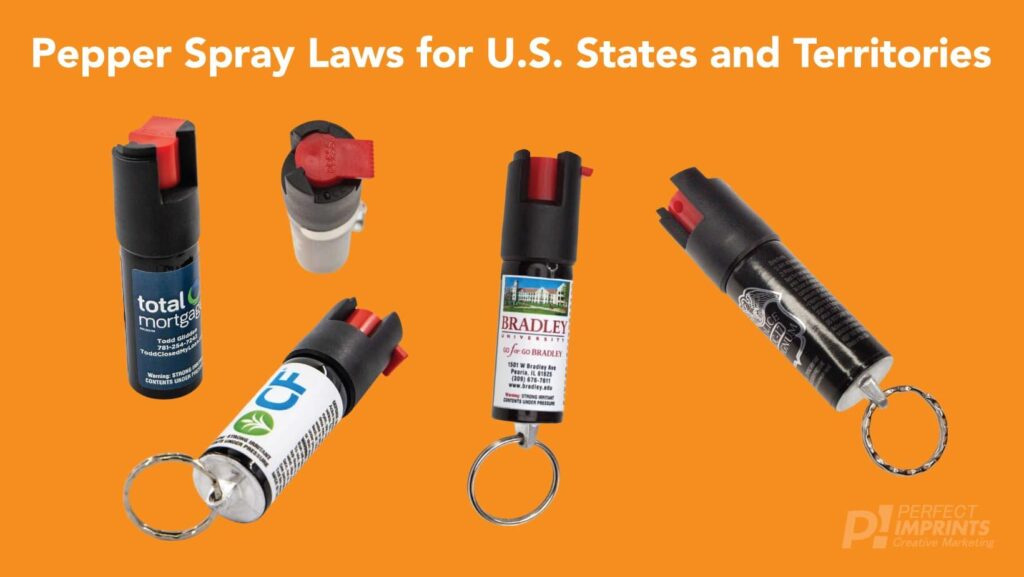Table of Contents
- Legal Overview of Pepper Spray Possession and Use in Pennsylvania
- Permitted Types and Concentrations of Pepper Spray for Self-Defense
- Key Restrictions and Prohibited Uses under Pennsylvania Law
- Practical Tips for Responsible Carrying and Proper Application of Pepper Spray
- In Conclusion
Legal Overview of Pepper Spray Possession and Use in Pennsylvania
In Pennsylvania, pepper spray is considered a legal self-defense tool, but its possession and use are subject to specific regulations designed to ensure public safety. Individuals 18 years and older may purchase, carry, and use pepper spray for personal protection without requiring a permit. However, it is illegal to use pepper spray with the intent to commit a crime or against law enforcement officers during their official duties. Additionally, certain locations such as schools and government buildings may have restrictions on carrying pepper spray, so awareness of local rules is essential.
Key legal considerations include:
- Pepper spray must be purchased from a licensed dealer or retailer.
- It should be used exclusively in self-defense situations.
- Possession by minors is prohibited.
- Use in an aggressive or offensive manner can lead to criminal charges.
Understanding these nuances helps ensure pepper spray is used responsibly and within the bounds of Pennsylvania law.
Permitted Types and Concentrations of Pepper Spray for Self-Defense
In Pennsylvania, the law permits the possession and use of pepper spray designed specifically for self-defense, but it strictly regulates the types and potency allowed. Generally, only aerosol sprays containing oleoresin capsicum (OC) are considered legal self-defense tools. The concentration of the active ingredient must not exceed 10% OC to ensure that the spray remains effective for protection while minimizing the risk of excessive harm or misuse. Spray devices should be handheld, compact, and intended for personal use, rather than delivery systems mounted on weapons or vehicles.
Buyers should also verify that the pepper spray canister is labeled clearly with its concentration and contains an inert carrier such as water or a non-toxic propellant. These formulations are designed to cause temporary incapacitation through irritation of the eyes, respiratory system, and skin, providing a non-lethal way to deter attackers. Items such as mace or sprays with higher chemical concentrations that may cause permanent injury are prohibited, emphasizing the state’s intention to balance personal safety with public health concerns. When purchasing, consumers should always choose products compliant with Pennsylvania regulations to avoid legal trouble and ensure responsible usage.
Key Restrictions and Prohibited Uses under Pennsylvania Law
Pennsylvania law imposes specific limitations on the possession and use of pepper spray to ensure public safety while allowing responsible self-defense. For instance, only individuals aged 18 and older are legally permitted to carry pepper spray, and its use is strictly confined to self-defense scenarios. It is illegal to deploy pepper spray against another individual unless you are facing an imminent threat of physical harm. Additionally, commercial distribution and sales of pepper spray are regulated, with vendors required to comply with state guidelines regarding packaging and proper labeling.
There are several important uses explicitly prohibited under Pennsylvania statutes. These include:
- Using pepper spray for offensive or aggressive purposes, such as during altercations where no immediate threat exists.
- Employing pepper spray against law enforcement officers, which is considered a criminal offense with severe penalties.
- Carrying pepper spray on school grounds or at certain public buildings, where it may be strictly forbidden to ensure a safe environment.
- Altering or manufacturing pepper spray devices in a way that enhances their harmful effects, which can trigger felony charges.
Practical Tips for Responsible Carrying and Proper Application of Pepper Spray
When carrying pepper spray, safety and legality should always guide your choices. Ensure your canister is easily accessible, such as clipped to a belt or stored in a sturdy yet reachable pocket, so you can react swiftly in emergencies. Regularly check the expiration date to maintain effectiveness, and avoid carrying oversized or prohibited types that may violate Pennsylvania laws. Keep the spray away from children and never brandish it as a threat. Understanding your surroundings and anticipating potential risks play a crucial role in responsible carrying.
Proper application requires both knowledge and control. Aim slightly downward and towards the attacker’s face, maintaining a safe distance (usually 6-10 feet). Avoid spraying into the wind to prevent self-contamination. If possible, practice with inert training sprays to build confidence without causing harm. After deploying pepper spray, seek immediate safety and inform authorities promptly. Remember, misuse or excessive force can have serious legal consequences, so always apply pepper spray strictly for self-defense situations.
In Conclusion
In conclusion, understanding Pennsylvania’s pepper spray laws is essential for anyone considering its use for personal protection. By staying informed about the regulations governing possession, purchase, and use, you can ensure that you’re acting within the law while maximizing your safety. Remember, responsible use and knowledge of local requirements not only protect you legally but also contribute to a safer community overall. Stay informed, stay prepared, and always prioritize safety first.Check Our Other Blogs
- StunGun – Your Trusted Source for Stun Guns, Laws, and Self-Defense Tips
- PepperSprayLaws – Your Trusted Resource for Pepper Spray Information
- StunGunLaws – Your Trusted Guide to Stun Gun Legality and Safety




